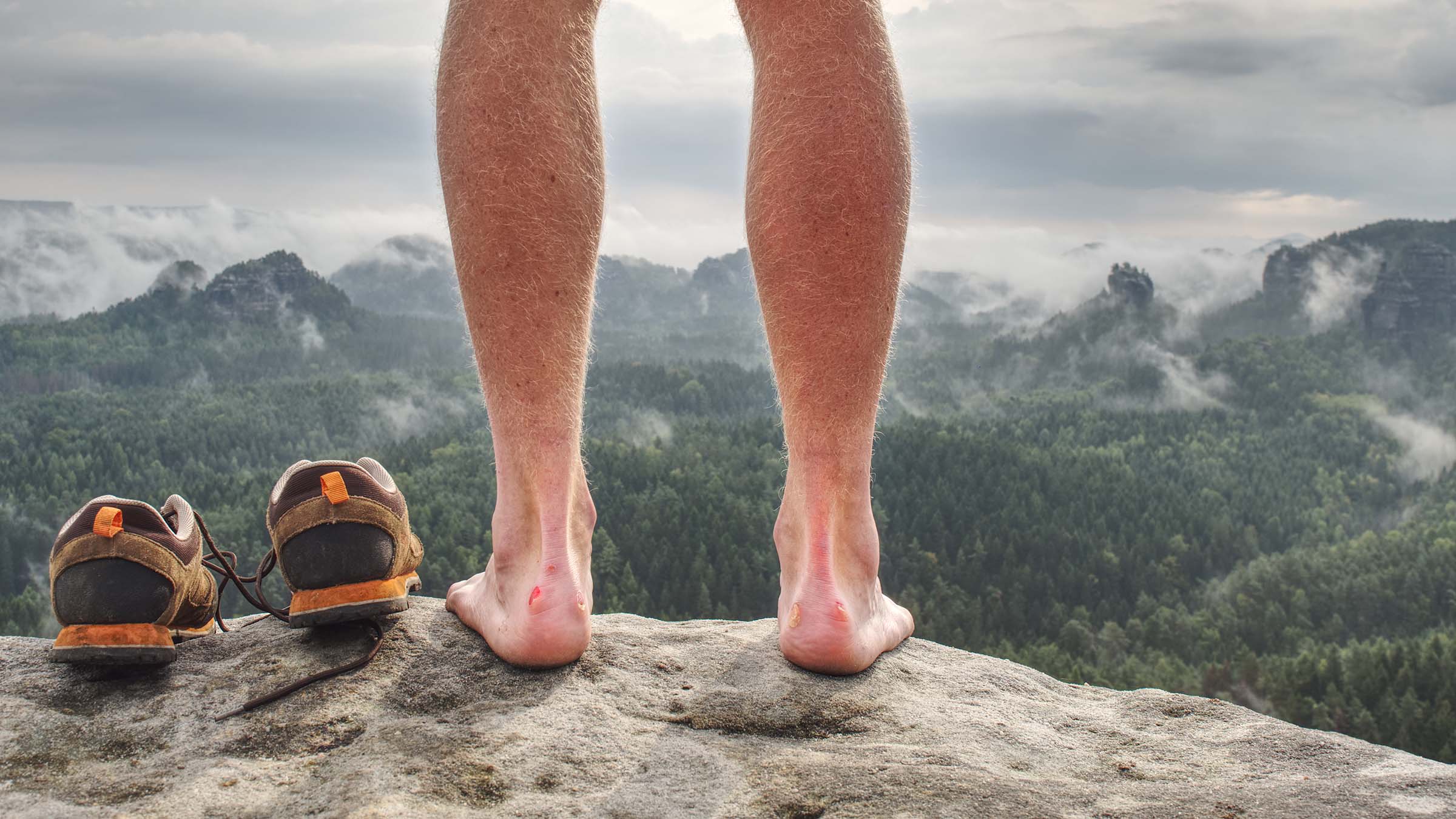Is It Legal to Hike Naked?

(Photo: Roman Donar / EyeEm)
Naked hiking isn’t for everyone. But hitting the trail in the nude provides a handful of brave hikers the opportunity to connect to the outdoors in a unique way. Head out on the Pacific Crest Trail (PCT) or the Appalachian Trail (AT) on or around Naked Hiking Day (this year’s celebration happened on the solstice, June 21) and you’re likely to run into some fellow backpackers, er, celebrating.
While Naked Hiking Day may be a new celebration, summer solstice festivals, on which Naked Hiking Day is based, are anything but. Neolithic humans used the summer solstice as an agricultural marker, and on Greek calendars, the holiday represented the start to a new year. Many modern pagans believe that magic was particularly strong during this celebration, and they build bonfires to further strengthen the sun’s energy.
Things have changed a bit since ancient times, however, and contemporary restrictions make it more difficult to hike au naturel. For many people, the freedom that it provides is worth risking a run-in with the law. But the consequences could change your mind.
Nude Hiking in the Eyes of the Law
According to Massachusetts criminal defense attorney Daniel Capetta, “If you walk on a public trail in the nude, and expose your genitals, it’s very reasonable to expect [in Massachusetts, at least] that you’ll get charged if someone reports you.”
But there’s nuance in the legality of hiking naked. In the state where Capetta practices, what consequences you face for baring it all likely depends on where you’re hiking.
“Is it federal land or state land?” Capetta says “The section [of the AT] in Massachusetts appears to be state land. What that means is that if you intentionally expose your genitals in a public space, where there’s no reasonable expectation that you’ll have privacy, there are two different potential charges [you could face]: A misdemeanor charge of indecent exposure or a felony charge of open and gross lewdness.”
Capetta adds that intent matters in so far as the differentiation between a misdemeanor and a felony charge. In order to face a charge of indecent exposure, you must expose your genitals to one or more person, it has to be done intentionally, and someone has to be offended by the sighting.
In order to be charged with a felony, in addition to the aforementioned requirements, the law . “requires that the exposure is done in a way that would cause a reasonable person to be shocked and alarmed by the exposure,” states Capetta.
Surprisingly, you might have an easier time hiking in the buff at most national parks. Technically, there are no federal laws against nudity. (The exception: Cape Cod National Seashore, which banned going full-frontal after a rash of complaints in the eighties and nineties.) With that said, nudity can be cause for a disorderly conduct charge if it disrupts or disturbs other visitors’ experience enough.
The same isn’t true for Forest Service and Bureau of Land Management territory, where local and state laws still apply. Strip there, and you’re putting yourself at the mercy of rangers, who can arrest or cite you at their discretion.
As far as Capetta is concerned, the rewards aren’t worth the risks.
“My advice would be not to do it,” he says “The smartest thing in this scenario is not to participate in naked hiking.”
Tips for Hiking Naked
Determined to give naked hiking a go? Understand the climate (literal and otherwise) where you’ll be going.
- Check local regulations to determine if a particular region has vocalized support or spoken out against Naked Hiking Day. Generally, authorities seem to discourage hikers from partaking in this holiday.
- There’s power in numbers. There are several different naked hiking groups that operate around the United States year-round. Some of these groups have an understanding with local law enforcement that makes it less likely that they’ll suffer consequences for hiking in the nude. Working with an organization like the American Association for Nude Recreation may provide a little bit of a safety blanket for those who want to dabble in the nude.
- Keep a low profile. It may be helpful for hikers to use the early morning hours of the day to complete their celebration. Additionally, if you have an action plan in place in case of an unfortunate encounter, you may save yourself some trouble. That might look like carrying a bandana or two to quickly cover your nethers.
- Another safe option: hike on private land. Just make sure to get the owner’s permission beforehand, or you could find yourself nailed for trespassing, too.
Once you’ve dealt with the legal issues, don’t forget about the practical ones. Wear bug spray (no one likes ticks), wear sunscreen (sunburn on your face is bad enough), and check the weather before you head out.